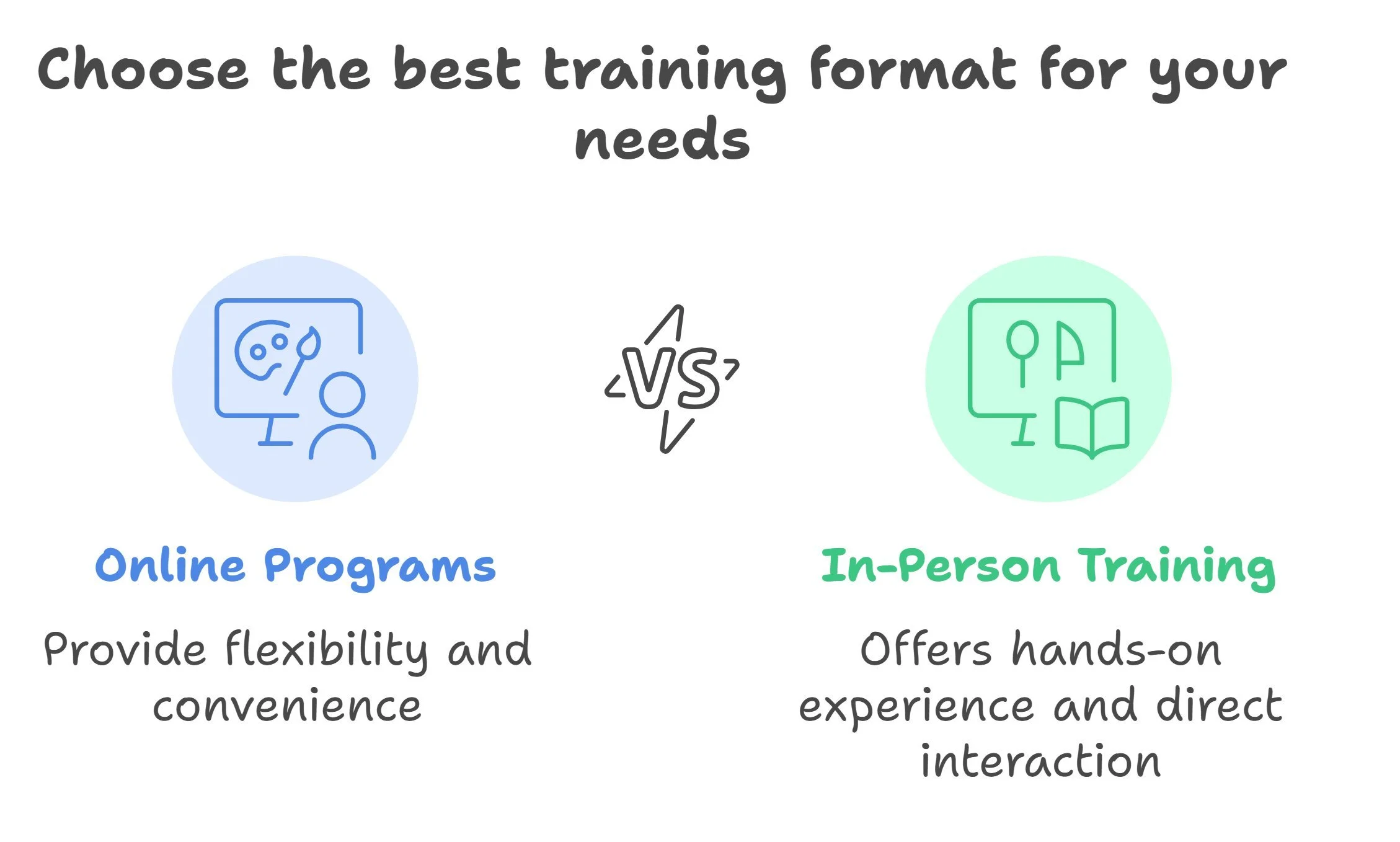How can I become a medical scribe?
Have you ever fantasized about sneaking a peek into a doctor's chaotic life without actually going to med school? Well, strap on your virtual stethoscopes and dive into the whirlwind world of medical scribes, where the adrenaline never stops, and the doctor’s pen is mightier than the scalpel! Becoming a medical scribe offers a unique vantage point into the medical world, combining the thrill of healthcare with the precision of real-time documentation. So, if you're ready to scribble your way into the heart of the action, read on to discover how you can kickstart your career as a medical scribe.
What is a Medical Scribe?
A medical scribe is essentially the doctor’s right hand, tasked with the critical job of documenting patient visits as they occur. While the physician focuses on the patient, the scribe takes on the responsibility of updating the electronic health record (EHR), capturing detailed histories, examination findings, diagnostic tests, and treatment plans. This not only helps in maintaining comprehensive and accurate patient records but also enhances the efficiency and effectiveness of care.
Why Choose a Career as a Medical Scribe?
Choosing to become a medical scribe is more than just a job; it's a front-row seat to the pulsating heart of healthcare. Here are some compelling reasons why embarking on this path can be a game-changer:
Gain Valuable Healthcare Experience: As a scribe, you are literally in the room where it happens. This experience is invaluable, providing a deep dive into medical terminology, patient interaction, and the decision-making processes of healthcare professionals.
Flexible Schedule: Many scribe positions offer variable hours, making them perfect for students or individuals looking for a balance between work and personal life.
Competitive Salary: Medical scribes are well-compensated for their critical role, with opportunities for salary increases as you gain experience and expertise.
Springboard for Future Careers: The insights gained as a scribe are incredibly beneficial if you’re considering further education in medicine, nursing, or allied health fields.
The Educational Pathway
To embark on your journey as a medical scribe, you'll need to navigate through a few educational checkpoints:
Minimum Requirements: A high school diploma is essential, but most employers look for more. College coursework in pre-med, biology, healthcare administration, or related fields can significantly bolster your resume.
Enhanced Learning: For those who want to dive deeper, many community colleges and universities offer specialized programs that focus on healthcare documentation, medical terminology, and the use of electronic health records.
Comprehensive Training Programs
Finding the right training program can be the make-or-break factor in your scribe career. Here are some factors to consider:
Online vs. In-Person: Online programs offer flexibility and convenience, perfect for those juggling other responsibilities. In contrast, in-person training provides hands-on experience and direct interaction, which can be crucial for learning complex healthcare procedures.
Certification: Your Ticket to Professional Recognition
While not always mandatory, obtaining certification as a medical scribe can significantly enhance your career prospects. It demonstrates a proven level of competency and knowledge in the field, setting you apart in the competitive healthcare job market.
Why Get Certified? Certification validates your skills and shows potential employers that you're serious about your career. It can also open doors to higher-paying positions and more prestigious healthcare settings.
Choosing the Right Certification: The ACMSO offers several certification options, tailored to different levels of experience and specialties within the healthcare industry. Ensuring that you choose a certification recognized by major healthcare systems is crucial.
Finding the Right Job
Armed with comprehensive training and your certification, you're ready to dive into the bustling job market for medical scribes. Here’s how to tailor your approach and ensure you stand out in the competitive field of healthcare documentation.
Where to Look
Local Hospitals and Clinics: Start your job hunt in environments that are foundational to healthcare like local hospitals and outpatient clinics. These settings are constantly seeking skilled scribes to enhance their operational efficiencies.
Specialty Clinics: Expand your search to include specialty clinics such as orthopedics, cardiology, or dermatology. These fields require detailed medical recording and often offer unique learning opportunities alongside top specialists.
Crafting Your Resume and Cover Letter
Highlight Key Qualifications: Clearly list certifications like those from the American College of Medical Scribe Specialists (ACMSS), any relevant training, and real-world experience.
Tailor Your Documents: Adapt your resume and cover letter for each job application. Use language from the job posting and focus on how your skills align with the specific needs of the position.
Showcase Relevant Skills: If teamwork is crucial, mention your collaborative experiences. For roles in high-pressure environments, highlight your ability to maintain composure and accuracy under stress.
Prepare for the Interview
Study Relevant Terminology: Familiarize yourself with medical terms that are pertinent to the job. Being well-versed in the language of the field will impress your interviewers.
Rehearse Your Responses: Practice answers to common interview questions for medical scribes, such as handling documentation errors or maintaining patient privacy.
Use Real-Life Examples: Be prepared to discuss specific instances where you managed stressful situations or maintained documentation accuracy during critical times.
Ask Insightful Questions: Prepare a list of questions to ask the interviewer. This shows your interest in the role and helps you assess if the environment is right for you.
By carefully preparing for each step of your job search, from identifying opportunities to excelling in interviews, you enhance your prospects of securing a rewarding position as a medical scribe. This meticulous approach not only highlights your qualifications but also demonstrates your commitment to contributing meaningfully to the healthcare team.
In addition to preparing for your job search, understanding whether medical scribes wear scrubs can provide insight into the role's professional environment. Find out if medical scribes wear scrubs in our informative blog post.
Essential Skills for Success
Being a medical scribe requires a unique set of skills to handle the demands of a fast-paced medical environment effectively:
Strong Written and Verbal Communication: You need to communicate clearly with both the healthcare team and within the medical records.
Active Listening: Paying close attention to every detail during patient interactions is critical.
Typing Speed and Accuracy: Efficient and precise typing is crucial as you will be entering medical data into electronic health records in real-time.
Time Management and Organization: Managing your workload effectively while ensuring the accuracy and completeness of the records you produce.
Attention to Detail: Medical records must be precise and error-free, as they are critical for patient care and legal documentation.
Career Advancement Opportunities
Working as a medical scribe is only the beginning. For those with higher aspirations in the healthcare field, the experience can pave the way for numerous advancement opportunities:
Further Education: Many scribes eventually move on to become nurses, physician assistants, or even doctors. The hands-on experience provides an invaluable foundation for tackling advanced medical degrees.
Specialization: As you gain experience, specializing in a specific area of medicine, such as emergency medicine or dermatology, can lead to more focused and potentially higher-paying roles.
Management Roles: Experienced scribes can progress to supervisory or management positions, overseeing other scribes, training new hires, and managing healthcare documentation systems.
In addition to gaining experience and specialization, understanding the requirements for becoming a medical scribe is crucial for aspiring professionals. Learn about the requirements to become a medical scribe in our detailed blog post.
Staying Ahead: Continuing Education and Recertification
The medical field is constantly evolving, and staying up-to-date with the latest advancements is crucial:
Continuing Education: Engage in ongoing training and education to keep abreast of the latest in medical technologies, terminology, and best practices.
Recertification: Depending on your certification, staying certified may require periodic recertification, which ensures that your knowledge and skills remain current.
Conclusion
Embarking on a career as a medical scribe is both challenging and rewarding, offering a unique gateway into the world of healthcare. With the right training, certification, and dedication, you can make a significant impact on patient care and pave the way for future opportunities in this dynamic field. If you’re ready to turn your interest in healthcare into a thriving career, becoming a certified medical scribe is your first step towards success. Explore our industry-leading Medical Scribe Certification at ACMSO and take your first step towards a fulfilling career that makes a real difference.
This guide provides a comprehensive overview of the medical scribe profession, ensuring readers are well-prepared to embark on this exciting career path.
Facts About Being a Medical Scribe:
Origins in Efficiency: The role of the medical scribe originated in the 1970s to improve the efficiency of emergency room physicians in the United States.
Impact on Patient Care: Studies have shown that medical scribes can improve the quality of patient care by reducing the time doctors spend on paperwork, allowing more time for patient interaction.
Reducing Burnout: By alleviating the administrative burden on physicians, scribes play a crucial role in reducing professional burnout among healthcare providers.
Technological Adaptation: Medical scribes are increasingly using advanced technologies, including AI and machine learning tools, to enhance the accuracy and efficiency of medical documentation.
Regulatory Compliance: Scribes help ensure compliance with healthcare regulations by maintaining thorough and accurate medical records, which are critical for both legal and medical auditing purposes.
Global Demand: The demand for medical scribes is growing not just in the U.S. but globally, as more countries begin to recognize the value of scribes in the healthcare system.
Specialty Specific Roles: Some medical scribes specialize in specific medical fields like dermatology, cardiology, or orthopedics, where detailed documentation of complex procedures is particularly important.
Legal Expertise: Medical scribes often receive training on privacy laws and HIPAA regulations to ensure that all documentation complies with legal standards.
Skill Enhancement: The role of a medical scribe is seen as an important stepping stone in medical careers, with many scribes eventually pursuing medical or nursing school.
Impact on Healthcare Efficiency: Hospitals that employ medical scribes have often reported significant improvements in the overall efficiency of their emergency departments, including shorter patient wait times and higher patient satisfaction scores.
FAQs
-
To become a medical scribe, typically you need a high school diploma or equivalent. However, most employers prefer candidates who have some college education, especially in healthcare-related fields like pre-med, biology, or healthcare administration. Additionally, strong typing skills and familiarity with medical terminology are highly beneficial.
-
Certification is not always mandatory but is highly recommended as it significantly enhances job prospects and credibility in the field. Organizations like the ACMSO offer certification that is recognized across various healthcare systems.
-
Yes, with advancements in digital healthcare technologies, remote medical scribe positions are becoming increasingly common. These scribes access consultations via video or audio links and perform their documentation duties without being physically present in the clinic or hospital.
-
The salary of a medical scribe can vary depending on location, experience, and the employing organization. On average, medical scribes in the United States earn between $30,000 and $45,000 per year. Experienced scribes or those working in specialized medical fields may earn more.
-
Medical scribing is an excellent entry point into the healthcare industry. It provides foundational skills that can be beneficial for advancing to higher positions such as healthcare administration, medical coding, or even clinical roles like nursing or physician assistant, especially with further education and training.






